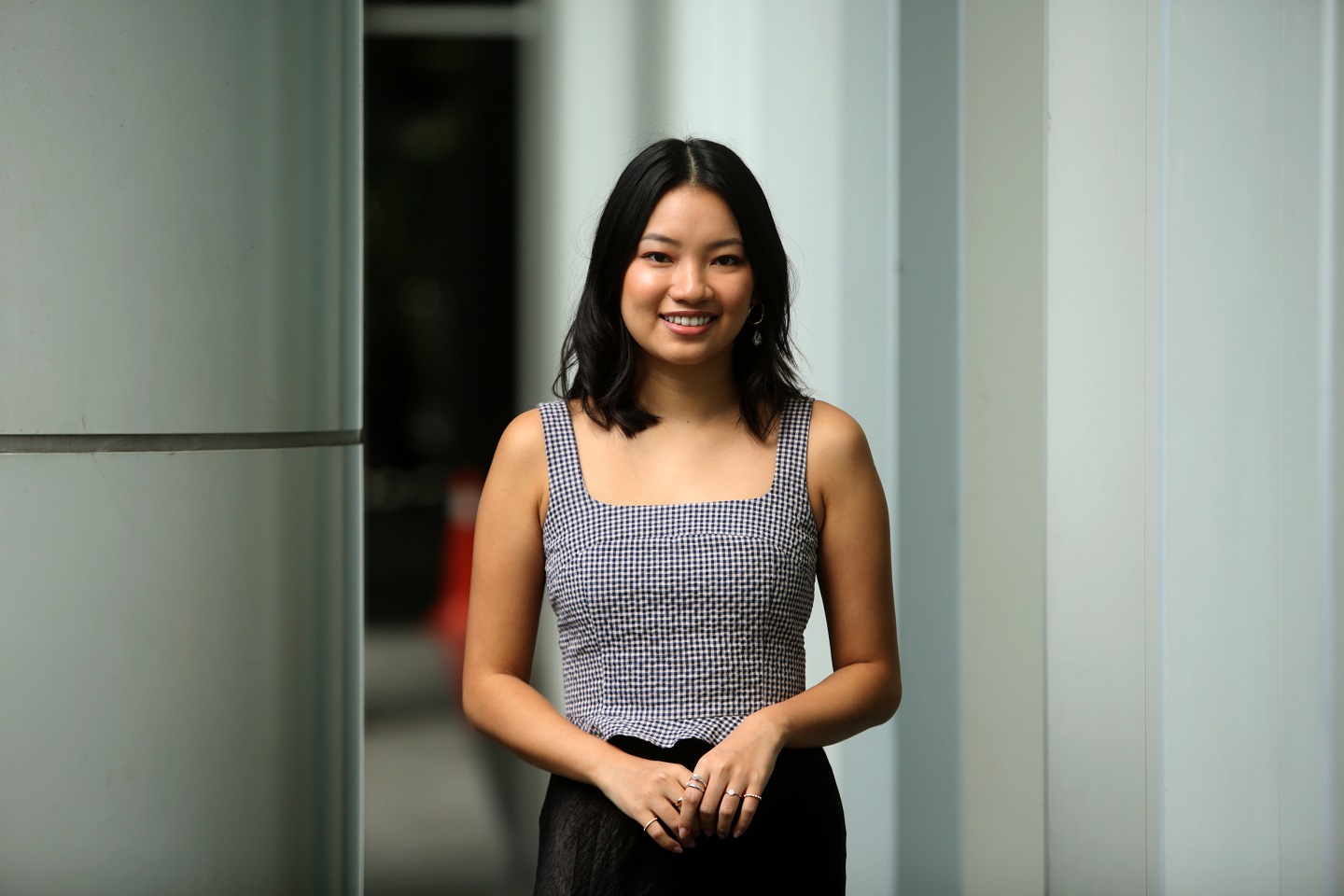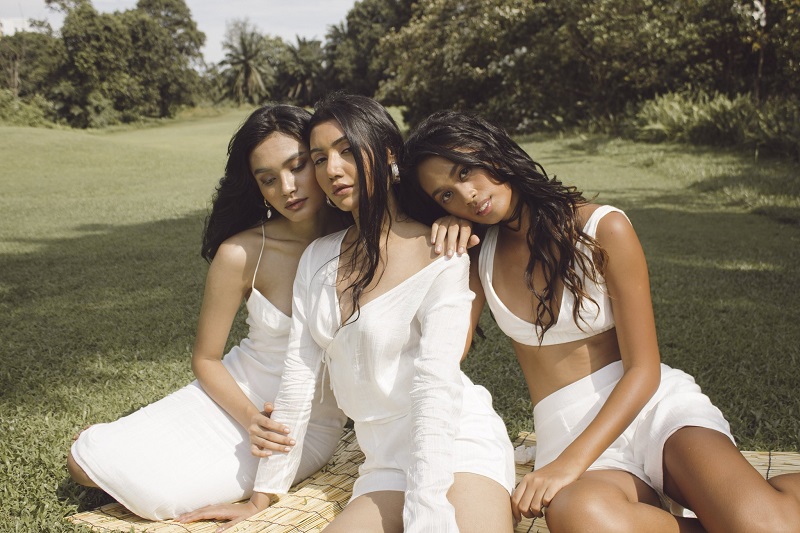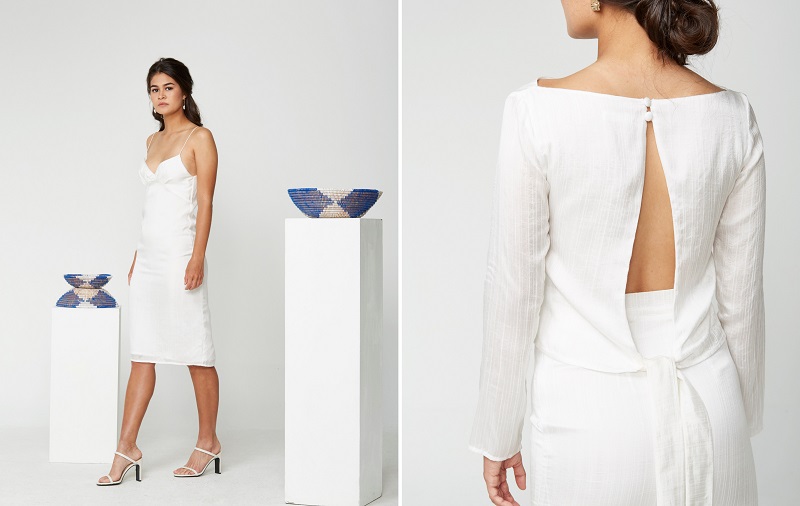
Yong started Sayang right after college (Photo: Sam Fong/The Edge)
Update: Sayang's latest collection is now available on their website.
It is becoming more apparent that fresh graduates no longer wish to follow the path paved by previous generations. The appeal of working for an established company that may or may not fulfil your passion has diminished, with a number of people choosing to pursue their dream and starting their own business.
This was the case for Dianna Yong, a graduate of the Fashion Institute of Design & Merchandising in Los Angeles. “I think I’ve always wanted to start my own business but I didn’t realise that I would start it so soon, right after college. I moved back to Kuala Lumpur and I was looking for a job but there wasn’t anything that spoke to me. So, I thought maybe I would just jump the gun and go with my idea,” she says. The idea — a fashion brand with an eco-friendly twist — was the brainchild of Yong and a college-mate. As the friends now live in different parts of the globe, Yong decided to go it on her own.

Born in Miri, Sarawak, she spent much of her youth overseas in places such as Brunei, Jakarta and Australia. Her family moved back to KL when she was 16 but after a few years of high school, she jetted off to LA to earn her degree. Now back in KL, she initially faced a few challenges. “I didn’t really grow up in KL, so I had to start life from scratch … not just the business but moving back home and building up a social network, everything from the ground up — that was difficult,” she explains.
Nevertheless, Yong was determined to succeed. She began setting out her plans for her business and researching her competition. “When I started, not a lot of brands were doing ethical fashion or anything like that but now, it’s only been two years but there are so many brands and there is an entire community built around this concept, so it’s nice.” Her ethical fashion brand, named Sayang, is feminine in essence.
When asked what makes her company sustainable, she says, “We’re not sustainable, I don’t think any brand is sustainable. The only way to be sustainable is to not create new products … I want to rebrand away from that word and put it out there that we are ‘mindful fashion’ — mindful every step of the way and throughout the process, from design to production.”
True to Yong’s word, Sayang’s tags and labels are made from recyclable materials and does not use synthetic fabrics. Instead, its clothes are made from natural fibres such as cotton and linen. “We don’t mass-produce — we keep our production small because most waste is caused by overproduction and dead inventory, so that’s a definite no-no for us. We want to have a limited-edition feel to our products,” she says.
She uses an ethical production house called Rocka Atelier, which works with underprivileged women and girls, training them through workshops to provide them with the skills they would need in this industry. “What’s interesting with Sayang is that we’re not [Rocka Atelier’s] usual clients. All our designs require techniques that are unusual to them, so they are learning something new. The designs aren’t revolutionary — for example, spaghetti straps — but they’ve never done them before. To them, they are new concepts and that’s nice.”
Yong starts off by sketching her designs digitally, after which she works out the technical aspects such as the fittings and samples. Then, she gets in touch with the head designer at Rocka Atelier, who gathers women who want to work on the project and they start the production process. At the beginning of her business, Yong released five designs in different colour palettes to test the market. After six months, she released another five.

“A lot of my designs are feminine. The inspiration behind them are women who carry themselves with a certain type of confidence. Whenever I design, I design for these women,” she says. Her contemporary style paired with natural fibres result in unusual designs that are great for the modern woman.
Sayang’s products are available for purchase on its website, and Yong often brings them to pop-ups. She had tried selling her products through a stockist in Singapore but was unsatisfied with its service. “It’s hard to manage the brand experience when it’s carried out by someone else … With them, someone is taking care of your brand but they’re not necessarily promoting it every day. They’re not creating interesting stories and also they don’t know how to tell the story. Only I know how to tell the story because it’s my brand.”
The brand will be releasing its first complete collection with 14 designs later this month. For this collection, Yong changed her supplier to one in India that focuses on natural fibres and dyes to better represent her brand essence. The new collection also comes with new packaging, which includes a reusable mesh bag. “I’m hard on myself but just doing better each time is important to me,” she says.
This article first appeared on June 3, 2019 in The Edge Malaysia.


